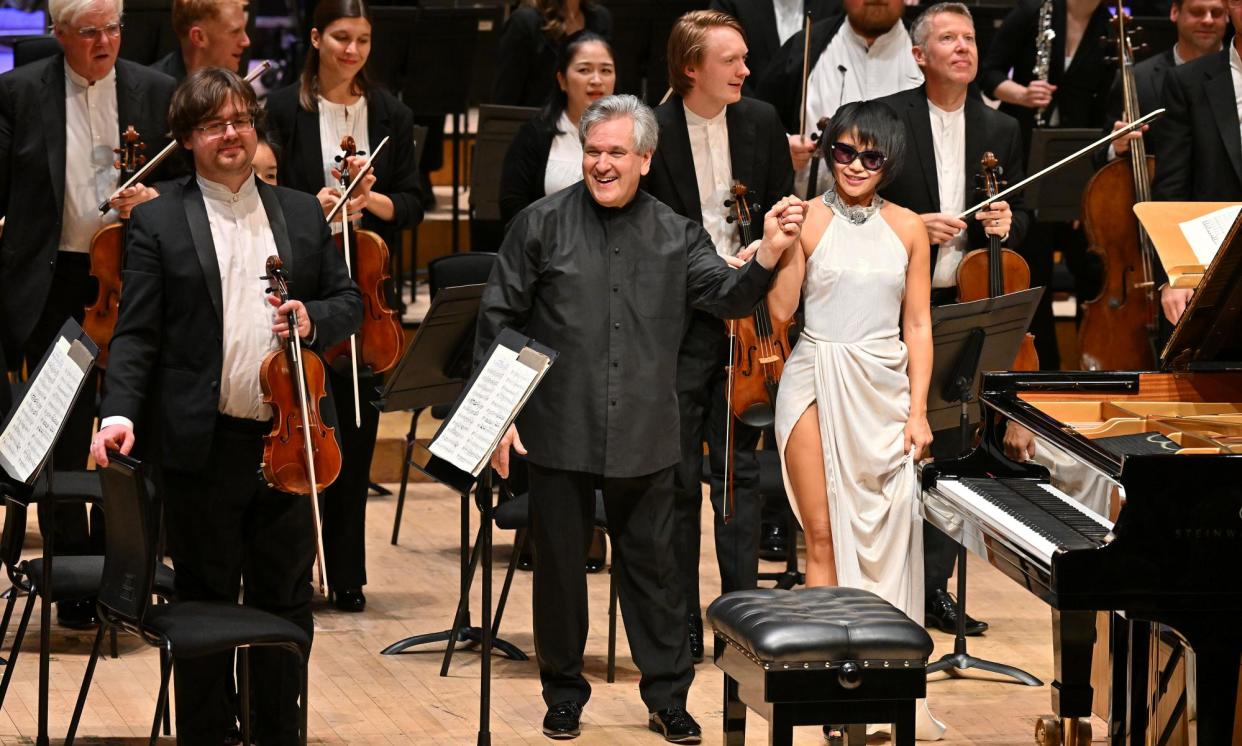LSO/Pappano/Wang/Lapwood review – high on feelgood factor

In an Olympian feat of programming, Antonio Pappano’s first few concerts as chief conductor of the London Symphony Orchestra feature works by 11 different composers over just eight days. His second concert, with celebratory helpings of Berlioz, Rachmaninov and Saint-Saëns was appropriately high on feelgood factor.
Berlioz’s Roman Carnival, a repurposed overture channelling themes from his ill-fated opera Benvenuto Cellini, played right into Pappano’s Italian heritage and operatic chops. Opening with a bang, and featuring a deliciously cantabile love theme, it ended in a veritable orgy of percussion (when it came to the cymbals, Berlioz was always a more-is-more man).
Yuja Wang was the iron-fingered soloist for Rachmaninov’s First Piano Concerto, often touted as the work of a young man but in fact substantially rewritten after the triumph of the Third. Wearing dark glasses, and with barely a glance to conductor or orchestra, Wang genuinely appeared to wish herself anywhere else but here. Seated at the piano, however, she turned in a blistering performance, from opening assault, muscular and robust, to the crystalline decorations with which she flecked the orchestra’s soaring melodies.
Pappano’s Rachmaninov is richly romantic and teeming with drama. Wang’s steely tone meant the orchestra could really let rip and Pappano duly obliged with beefy fortes and an emotion-tugging elasticity. The haunting Andante, on the other hand, recalled moonlight on a millpond, Wang playing with a tender profundity and bringing out the music’s jazzy melancholy.
Anna Lapwood was the soloist for Saint-Saëns’ Organ Symphony, seated at a modest console wedged between the brass and the double basses. As Pappano dug into the work’s moody grandeur, stalking trombones intoned the medieval Dies Irae. Later, the burnished LSO strings brought out the music’s Elgarian warmth underpinned by Lapwood’s whispered chords. As far as orchestral dazzle goes, the finale was a grand and uplifting affair. Only the organ sound disappointed. In some performances you can sometimes struggle to hear the orchestra over the organ’s glorious, thundering melody, but here it felt a size too small. A pity, as Lapwood played with style and the sense of spectacle was palpable.


